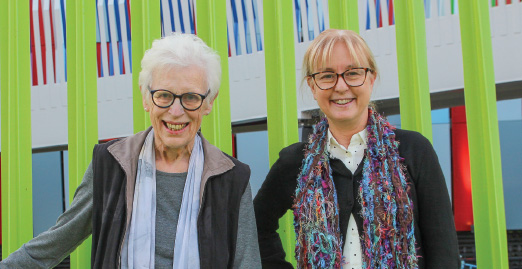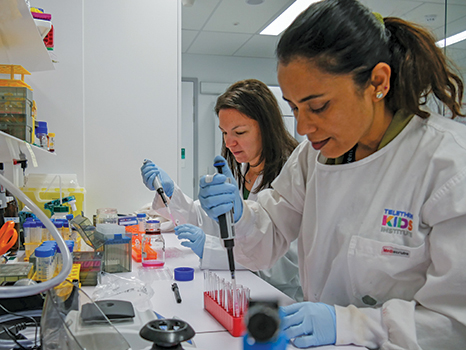Search
Research
Exploring the immune microenvironment and investigating novel immunotherapeutics for medulloblastoma and paediatric high-grade gliomaRaelene Nick Endersby Gottardo BSc (Hons) PhD MBChB FRACP PhD Brainchild Fellow; Co-Head, Brain Tumour Research Head of Paediatric and Adolescent
Research
FeBRILe3– Fever, Blood cultures and Readiness for discharge in Infants Less than 3 months’ oldTom Snelling BMBS DTMH GDipClinEpid PhD FRACP Head, Infectious Disease Implementation Research 08 6319 1817 tom.snelling@thekids.org.au Head,
Research
Finding new, safer and targeted therapies for paediatric brain cancer that amplify responses to radiation therapyRadiation therapy is an essential component of brain cancer treatment. However, the high doses currently required are extremely damaging to the growing brains and bodies of children.
Find information for the Healthy Pregnancy & Me brochure for health professionals.
Information from the Healthy Pregnancy & Me brochure for health professionals on what the definition of a healthy pregnancy weight is.
Research
Evaluation of safety and immunogenicity of a group a streptococcus vaccine candidate (mj8vax) in a randomized clinical trialIntramuscular administration of novel acetylated peptide-protein conjugate vaccine candidate MJ8VAX was demonstrated to be safe and immunogenic

The Kids Research Institute Australia is helping scientists across the globe inch their way towards clinical trials which could, at last, provide relief for children and families dealing with CDKL5.

The The Kids Cancer Centre is at the cutting edge of developing new, safer ways of treating children with cancer using their own immune systems.

News & Events
Shopping For Data to Drive DiscoveriesWhat if researchers could shop for different data to help uncover how, when and why chronic conditions such as asthma, obesity, allergies and poor mental health develop?
